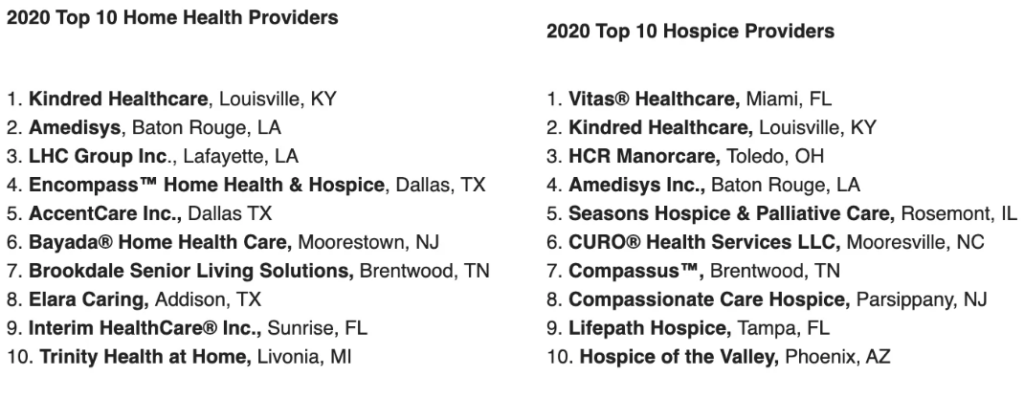
This article is a part of your HHCN+ Membership
Option Care Health (Nasdaq: OPCH) announced its plans to acquire Amedisys Inc. (Nasdaq: AMED) at the beginning of May. In early June, competition arrived, as UnitedHealth Group’s (NYSE: UNH) Optum put in its own bid to acquire Amedisys.
For Option Care Health, the deal was its way to create an end-to-end health care continuum in the home, layering Amedisys’ capabilities onto its home-based infusion services. It also would create a healthy, diversified payer portfolio that neither company currently has on its own.
That’s still the plan, according to Option Care Health President and CEO John Rademacher.
“We really are excited about the merger with Amedisys,” he said Wednesday at the Jefferies Healthcare Conference. “We think it can create something unique and different. We’re going to continue to push that forward. And do everything that we can to make certain that we’re executing around that and creating long-term shareholder value.”
Unique, different and valuable long term seems to be Option Care Health’s three-pronged pitch to Amedisys shareholders. To its own shareholders, there’s the above – an end-to-end continuum and diversified payer mix – but also the scarcity factor. Amedisys is one of the last independent, at-scale home health care providers.
But Optum has another pitch, one that Amedisys shareholders may prefer. And, elsewhere, other pitches may be in the making.
This week’s exclusive, members-only HHCN+ Update takes a look at the immediate questions surrounding the future of Amedisys.
A bidding war
The brass tacks of the situation:
– Option Care Health’s bid valued Amedisys at $3.6 billion. That number would be a 26% premium compared to Amedisys’ closing stock price as of May 2. Amedisys stockholders would receive 3.0213 shares of Option Care Health stock for each share of Amedisys common stock they hold, and upon closing, Option Care Health stockholders would own approximately 64.5% of the combined company compared to Amedisys stockholders’ 35.5%.
– Optum this week made an unsolicited proposal to acquire all of the outstanding shares of Amedisys’ common stock in an all-cash transaction for $100 per share. The proposed deal represents a 26% premium over Amedisys’ most recent closing share price and a premium of 29% to the unaffected Amedisys share price of $77.26.
– Optum’s move could represent a “superior proposal” to Amedisys shareholders. In the case that such a proposal wins out, the breakup fee between Amedisys and Option Care Health would be $106 million.
“We’re not surprised that someone else thinks that the Amedisys asset is a great one,” Rademacher said. “We have articulated that all along.”
One of the reasons Amedisys is viewed as a great asset is because it’s considered scarce. It is scarce, in part, because Optum acquired LHC Group – another one of the country’s largest home health providers – in February.
The price tag for LHC Group was $5.4 billion, while the Option Care Health deal valued Amedisys at $3.6 billion.
“Even with the numerous providers, demand for in-home care far exceeds available supply, creating the need for substantial investment in the sector to more fully serve patients and their families with compassionate, high quality care in the comfort of their own homes,” Optum said in a statement published Monday.
LHC Group provides home health, hospice and home- and community-based care in 37 states and the District of Columbia. In total, it has 527 home health locations and more than 400 hospital partnerships. Amedisys also provides home health, hospice and palliative care in 37 states and the District of Columbia. While it has fewer employees, it also has Contessa Health, a high-acuity care at home provider it acquired for $250 million in 2021.
At market close on Wednesday, Amedisys stock was $92.10 per share. In January of 2021, its stock price was above $313 per share.
Optum is focused on moving care to the home. In-home primary care, at-home assessments and home health care are just a few of the avenues it’s taking to get there. Therefore, it not only sees Amedisys as valuable – for the same reasons it found LHC Group to be that – but it also likely sees it as a relative bargain.
Yale Medicine and Optum researchers released a study this week that showed that MA patients who receive in-home health visits through the Optum HouseCalls program were less likely to spend time in the emergency room and inpatient hospital settings. Patients with coronary artery disease, Type 2 diabetes, hypertension and depression, in particular, benefited from those in-home visits.
“How you move care to home, [that’s] really important, and that’s going to be a big play in the future,” UnitedHealth Group CEO Andrew Witty said last week during the Bernstein 39th Annual Strategic Decisions Conference. “How we can manage folks at home, how we can help them get good care at home, that’s going to be an important element of building up [our] capabilities.”
There were questions around whether Option Care Health shareholders would approve the Amedisys deal prior to Optum’s bid. There are now even more questions.
Optum’s bid is technically worth around $3.3 billion, but an all-cash transaction may be more attractive to Amedisys’ shareholders.
At the same time, due to Optum’s recent acquisition of LHC Group, there is a belief that the deal would be heavily scrutinized by the Federal Trade Commission (FTC). The FTC submitted two requests for more information when the LHC Group deal was pending. Acquiring another one of the top-three home health providers would undoubtedly receive more intense scrutiny.
Optum isn’t concerned.
“In-home care is provided by thousands of organizations nationwide, with no single participant having more than a single-digit percentage share, a core reason Optum is confident it can secure approval for the combination,” it noted in its Monday statement.
If Optum acquired both LHC Group and Amedisys, it would only own around 10% of the U.S. home health market.
While 10% of the home health market may not be enough for the FTC to nix an Amedisys deal, it would be enough to give Optum the largest home health footprint in the country – by far.
That wouldn’t just help its payer side, United Healthcare, with post-acute and home-based care access. It would also open up the ability to collect revenue from traditional Medicare in a fee-for-service fashion while also providing home health care to other Medicare Advantage (MA) plans.
In the event that Optum pulls the deal off, the three largest home health providers in the country would be part of payer organizations. Kindred Healthcare is now CenterWell Home Health and a part of Humana (NYSE: HUM).

Home health providers are becoming a part of organizations with the largest MA plans in the country at a time when negotiating with those plans for higher rates has become one of their biggest challenges.
Of course, neither Optum nor Option Care Health has a done deal just yet.
Another scenario
Optum saw a valuable asset in Amedisys, and an acquisition price it felt it could top.
But nothing is technically stopping another company from coming in and making a more “superior” bid for Amedisys.
The floodgates are now open. Retailers, payers and health systems interested in home health capabilities may see this as one of the last opportunities to acquire an at-scale, quality provider.
CVS Health (NYSE: CVS), for instance, has mentioned multiple times over the last few months that it is still interested in home health assets. It also owns Aetna, another one of the largest MA plans in the country.
There are other payers, too, without home-based care capabilities. But many have already decided to not begin acquiring provider capabilities.
Additionally, Option Care Health is likely not the only health care provider that desires an end-to-end continuum in the home. It’s hard to speculate at this point the other players that may be interested, but it’s more than likely that they’re out there.
It’s a certainty that Amedisys is up for sale. But the buyer’s identity is now far from a certainty.




